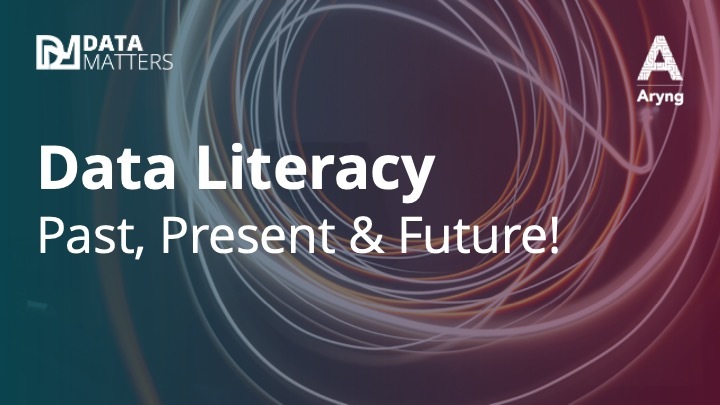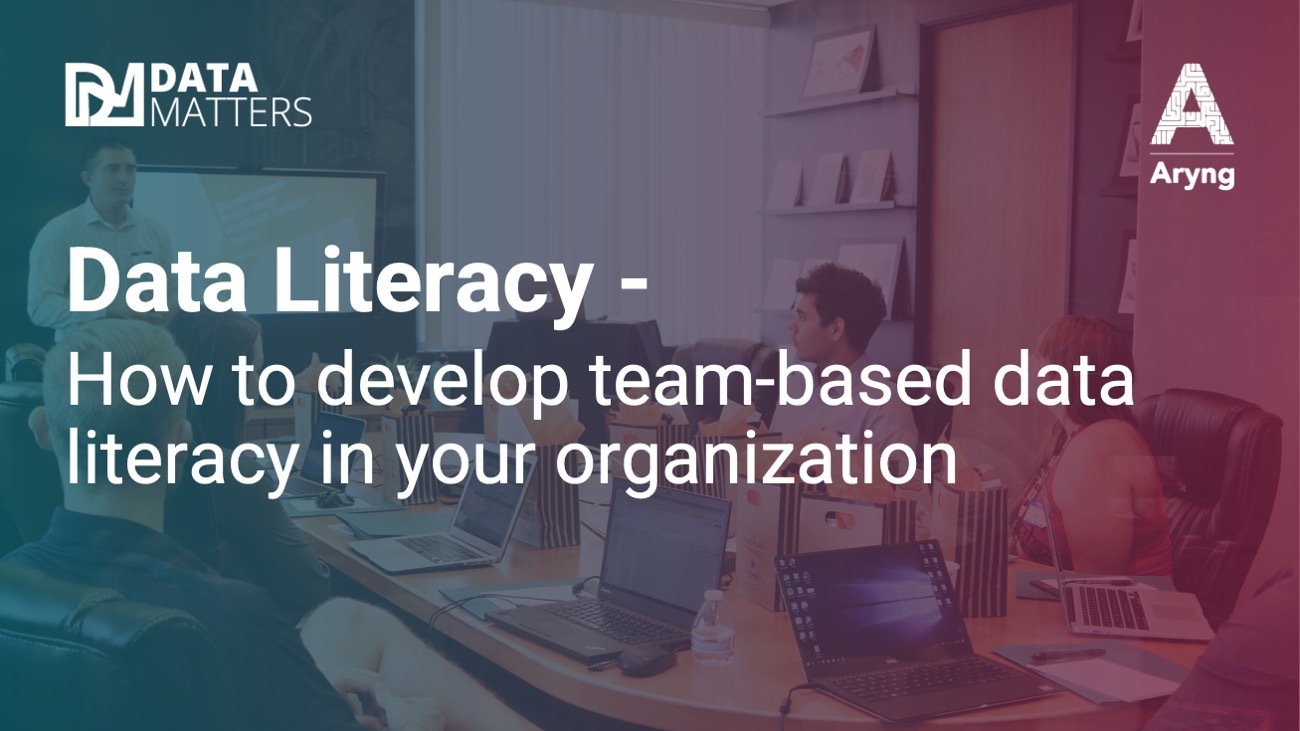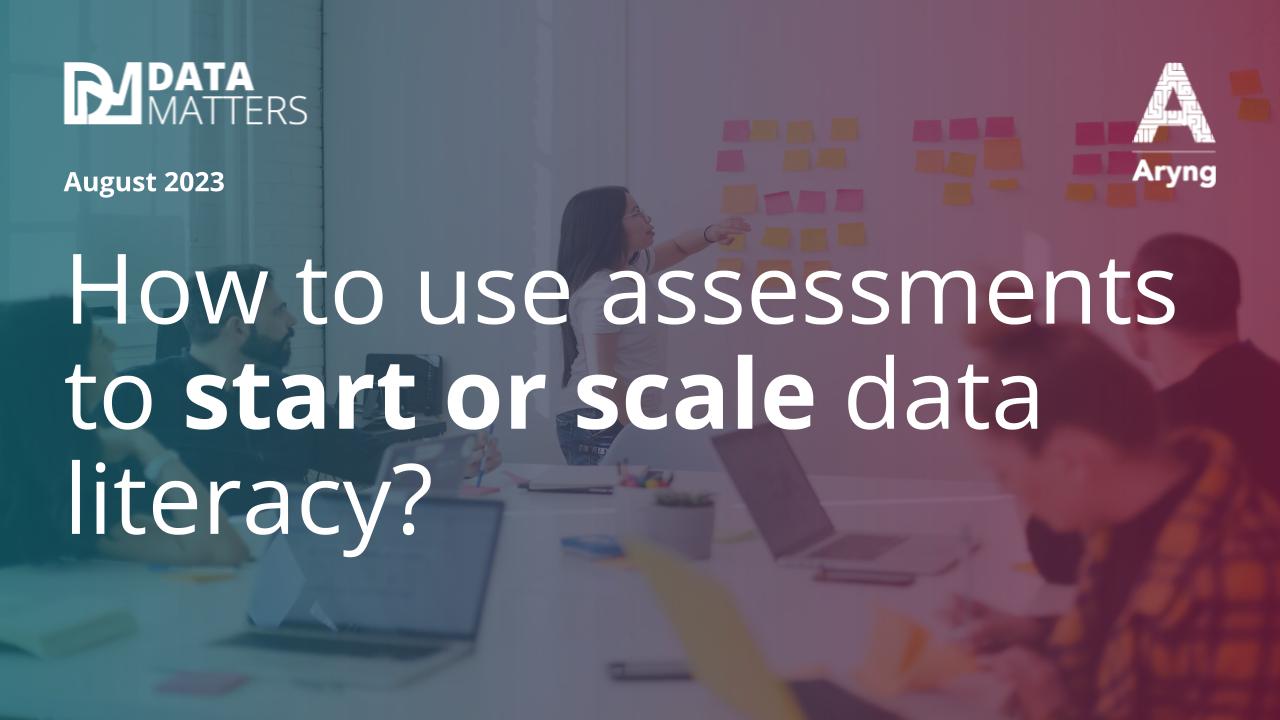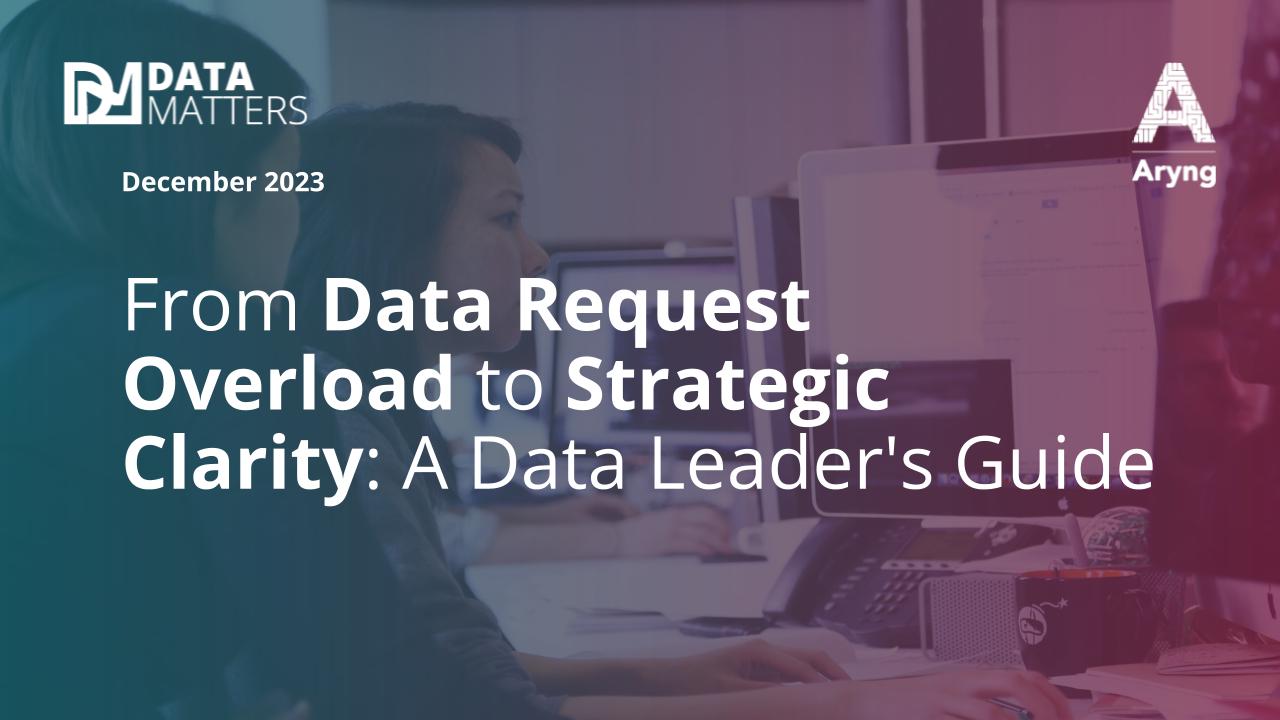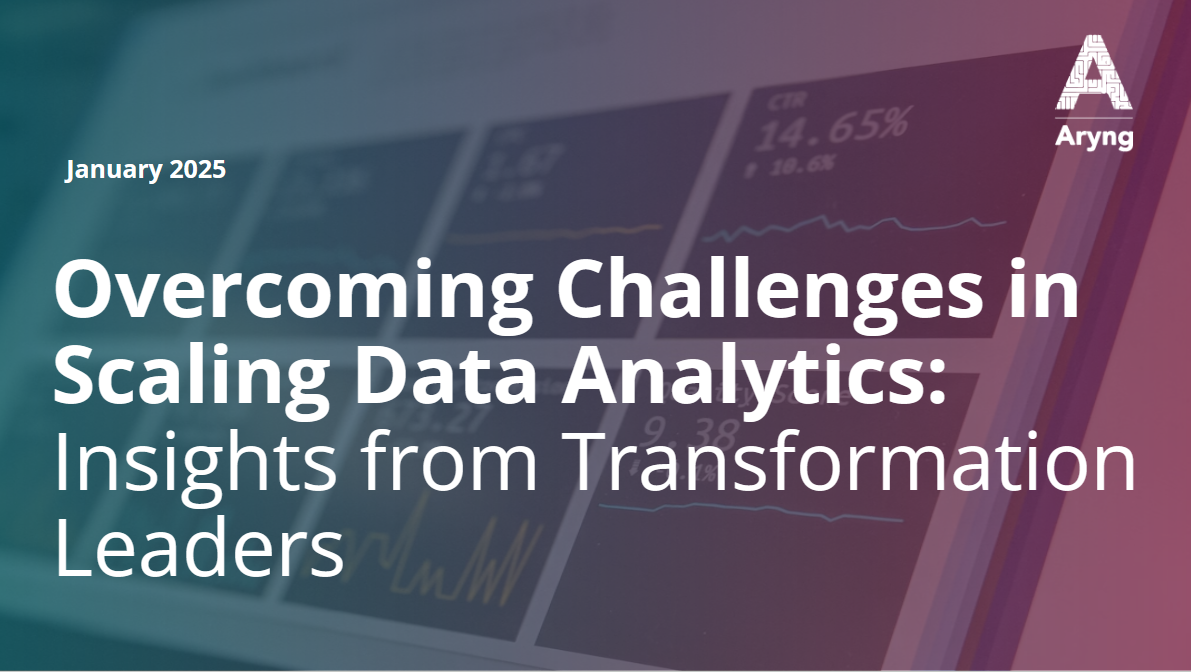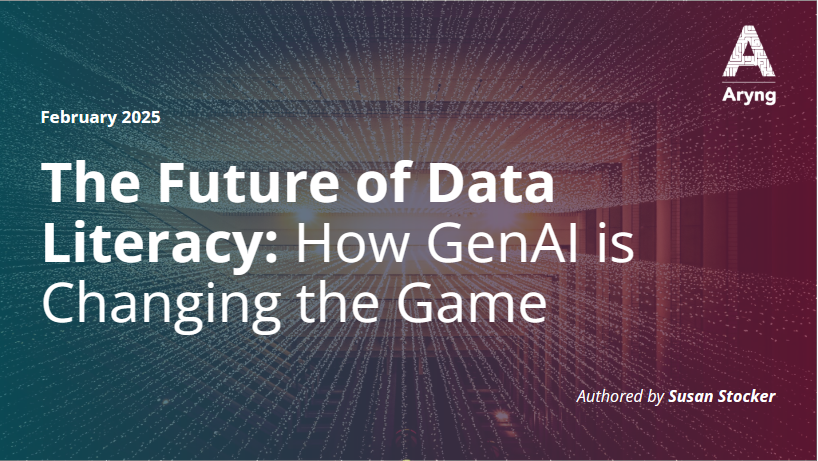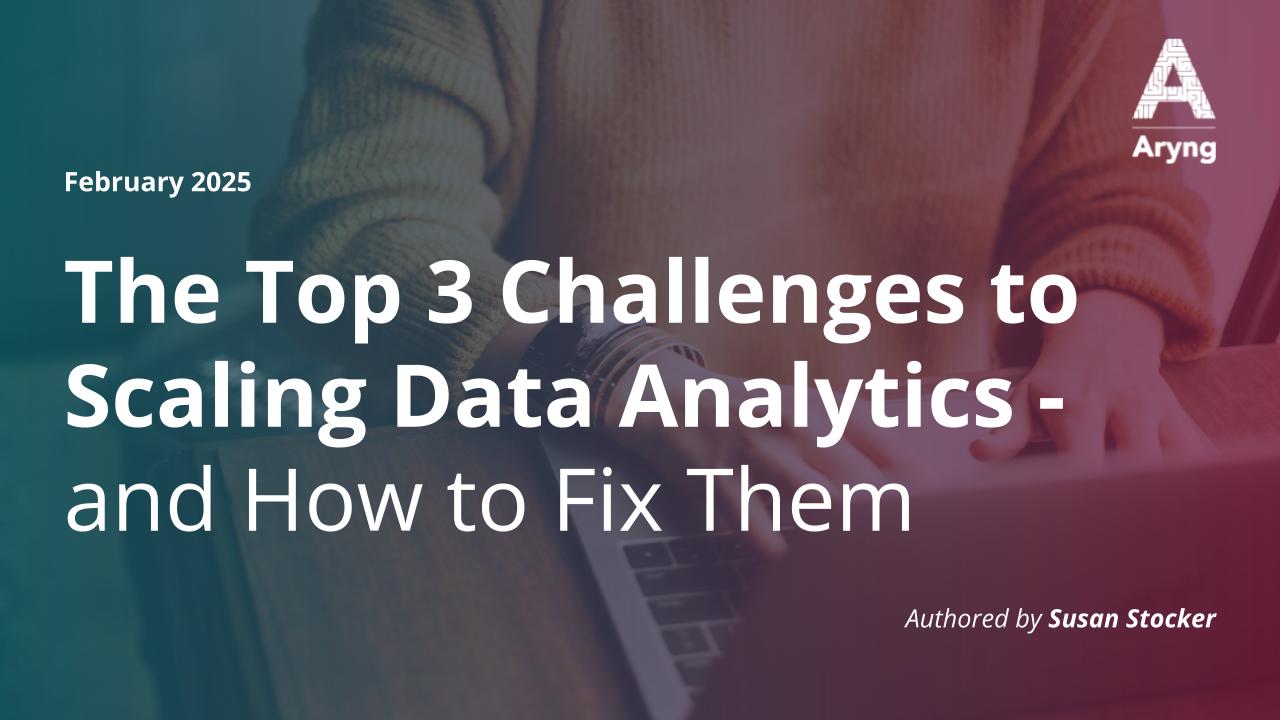
Personas are created to describe the outcomes you want each one to achieve. The specific functional groups and roles can be mapped to a persona that is appropriate for them.
Each employee uses data and reacts to it differently. The level of data literacy they need depends on their job roles and their decision-making requirements. With personas, training can now be stratified and relevant to each one and avoid pushing everyone through the same generic courses.
Below are six data literacy personas Aryng has defined. These are based on our work with clients in hands-on data analytics. Over the past 12+ years, we have seen firsthand what it takes to deliver business value through data analytics. In addition, we have mapped each persona to a list of skills and skill levels. This enables us to quickly produce an assessment that can determine the current level of data literacy.
If you want to know your data literacy persona, take this assessment: Data Literacy Test
Data Literacy Personas in an Organization
-
-
- Data Skeptics: They don’t believe in the value and power of analytics and data. They see them as a burden to their work. Data skeptics can derail any data literacy project. Hence, companies must nurture them into a higher persona to avoid mishaps. A good data awareness program can help in this conversion.
- Data Enthusiasts: They understand the analytics landscape and can be active participants in discussions involving data. They are willing to hone their analytics skills. In addition, a good recipe-based analytics program with hands-on practice can further develop their skills. This can take the company a long way toward being data-driven.
- Data Literates: They are data-driven employees who can solve 80% of their business problems using a structured approach to analytics and, in the process, align the stakeholders as well. They can get to an actionable solution and move the critical metrics for the company. Some citizen analysts can also be taught advanced analytics.
- Citizen Analysts: They are data-driven employees who can solve 80% of their business problems using a structured approach to analytics and, in the process, align the stakeholders as well. They can get to an actionable solution and move the critical metrics for the company. Some citizen analysts can also be taught advanced analytics.
- Digital Citizen Analysts: They possess the same skillset as a citizen analyst, except that they can design and analyze A/B tests.
- Data Scientists: They are adept in advanced analytics methodologies. They can solve almost all of business problems using analytics. They are adept in using cutting-edge tools like R, Python, and SAS to manipulate data and build models. These Data Scientists are capable of aligning stakeholders toward an actionable solution and excelling at the data-driven decision-making process.
- Data-driven Executives: They understand the power of analytics, which is discovering and interpreting meaningful patterns in data and their application for effective decision-making. Data plays an integral role in the decision-making process. They hold their team accountable for their work and can understand whether or not analytics has been executed correctly. They champion a common data analytics process across the organization.
-
Need to learn more
In conclusion, know that data literacy is not a one-size-fits-all solution. Customize personas that fit your organization. Map roles and functions to each persona. Define the highest priority skills and begin your data literacy journey with an assessment that shows your organization’s current skill level. All of this will lead to a more informed decision before investing in training.
If you want to know more about data literacy and culture, go through this link – Data Literacy


